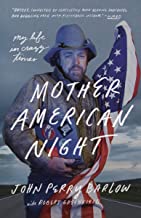No regrets.
December 30, 2020‘I regret nothing.’ Edith Piaf
From Alexandra Stoddard, as we ready for another journey around the sun:
‘Ive learned a great deal this year. I feel it has been productive and also enjoyable day to day. What a wonderful thought to live our lives with as few regrets as possible.
What kind of year did you have? How would you rate it? No matter how many challenges you’ve had, no matter what pain you’ve endured, did you do your very best?
Then have no regrets.’
Alexandra wrote these words in 1993.
peace
A true renaissance man…and modern-day Forrest Gump.
John Perry Barlow, My Life in Crazy Times. Writing for Wired magazine, he traveled to Sarajevo to write about information and the Serbo-Croatian war in the early 90’s. He writes in his book:
“They wanted me to write about the relationship between information and the war and the way in which the mass media had created a hallucination that was destroying the ability of each side to see the other’s humanity.”
If he would have stayed well, what would he be writing now, about the United States of America.
[…]
“The truth is we come into the world from the other side, which is entirely made of love, where it’s all open and could not be more open, into this place of constriction and containment and closure and dogma and terror.”
[…]
“Love forgives everything.”
Barlow died right after he finished his memoir.
“In Cyberspace, the First Amendment is a local ordinance.”
Barlow was also a lyricist for The Grateful Dead.
Ketchum Idaho’s Community Library
Knitting Yarns and Years
|
|
|





